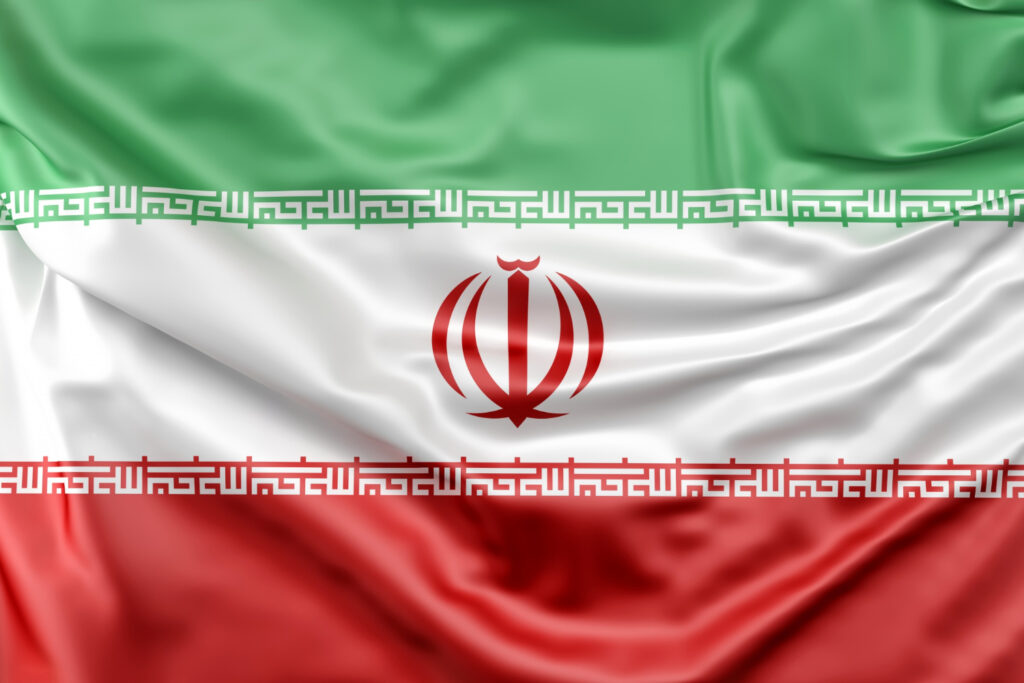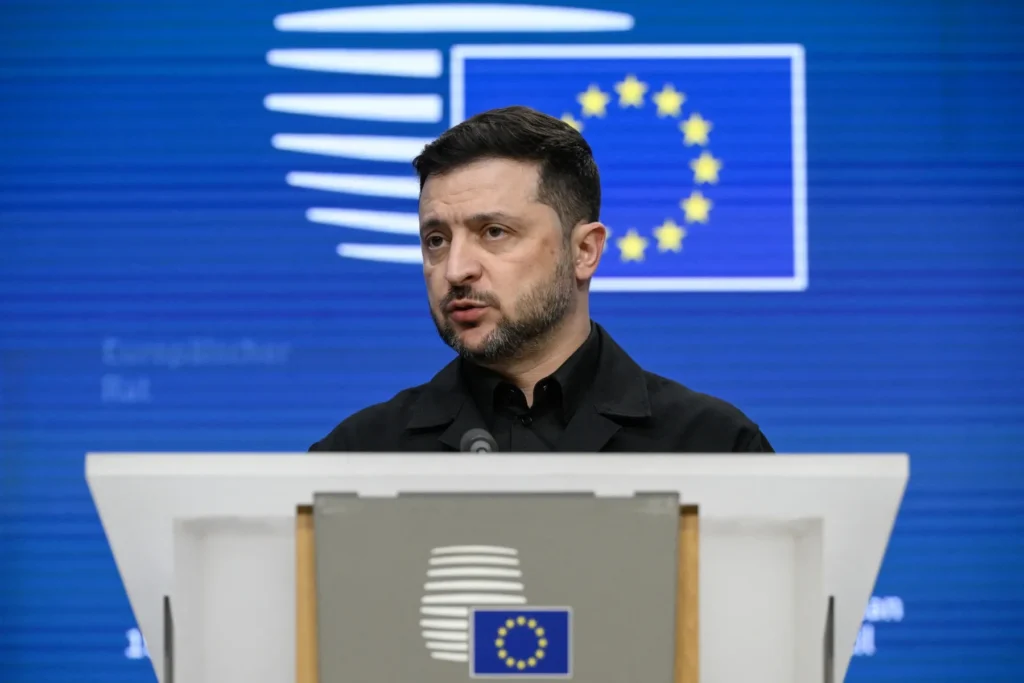Iran Protests Spread Amid Economic Crisis

As a result of rising prices, high inflation, and the depreciating Iranian currency (the rial), there have been widespread protests across Iran. The latest reports show there have been at least six fatalities, and these include both protestors and police officers. It is the first instance of fatalities in connection to these protests, which could mean a more severe response by the Iranian regime in future protests. Although protests have subsided in Tehran, protests throughout Iran have gained momentum in smaller towns and rural regions. The Lur people make up a majority of the population in many of these regions, and they have been particularly impacted by the shared economic crisis faced by all segments of Iranian society. Violence Reported in Several Cities Reports of violence have surrounded many of the protests that have continued into today. The most significant level of unrest has been reported in Azna, located in Lorestan province. A video circulating on social media showed evidence (fire) in the streets, and the sounds of gunfire can be heard in the same videos along with crowds chanting slogans directed at officials. The semi-official news agency, ILNA, has reported three deaths during the protests that took place in Azna; however, reports from the state-run media provide limited information. In Lordegan, another town experiencing violent protests, videos circulating on social media show people congregating in the street while the sound of gunfire is audible in the background. Reports from various human rights organisations have reported that two persons have died during clashes with security officers. Photos taken in Lordegan show police officers wearing body armour. Death of a Paramilitary Individual In Kouhdasht, a protest caused the assassination of a 21-year-old member of Iran’s Basij paramilitary group. State-run media sources contend that from the riotous crowds came the murder; even multiple law enforcement officials, as well as Basij members, sustained injuries during the protest. Local authorities indicated that about 20 individuals had been arrested during the demonstrations and declared, “Order in the area has been restored.” Authorities claimed that the major instigators behind the protests were economic conditions, while also noting that many of the people protesting were influenced by events outside of Iran. Competitive Pressure on the Economy Economic pressure continues to create a tremendous amount of uncertainty in developing countries like Iran. Since the way that the economy is structured, the base currency of Iran (or riyal) has lost a tremendous amount of value. Currently, the exchange rate of $1 is about 1.4 million riyals. In addition, as a result of inflation and rising unemployment, many working-and-poor individuals in Iran have difficulty meeting daily needs. President Masoud Pezeshkian confirmed that economic issues are, in fact, the principal motivation for the protests. He indicated that the Iranian government must address citizens’ concerns but that the Iranian government has limited resources available to remedy the situation due to the effects of sanctions and a lack of available funding. Iran has entered a period of growing uncertainty. While protests are not taking place across all of Iran as they were in 2022, these demonstrations in Kouhdasht mark the largest protests to occur in Iran since that time. Consequently, as economic pressures continue to increase in Iran and citizens have not seen any decrease in tensions in the past year, the general level of anxiety among citizens is increasing considerably with respect to their future. For in-depth analysis and the latest updates on global political and economic developments, visit👉 https://thebusinesstycoonmagazine.com/
FTAI Turns Old Aircraft Engines into Power for AI Data Centres

FTAI Aviation has started a new venture entitled FTAI Power, which will repurpose retired jet engines as electric generators in artificial intelligence service centres. The establishment of this new business venture underscores a considerable global growth in demand for energy to support ongoing expansion of artificial intelligence infrastructure. From Jet Engines to Electricity Generators The CFM56 aircraft engine has been chosen for repurposing by the company because it is one of the most widely used jet engines in the world and powers many of today’s most popular airplanes, including the Boeing 737 and Airbus A320. Since many older aircraft will be retired in coming years, numerous CFM56 engines will become available for repurposing after they are removed from the aircraft, even though they still have years remaining for continued service. The company will transform each of these engines into an aeroderivative gas turbine that can be used to provide electricity to larger Data Centers. Each engine will be converted to provide approximately 25 megawatts of power; this amount of energy is sufficient for powering AI servers that require high levels of energy consumption. Faster Power for a Growing AI Market Data-centre developers are facing one of their greatest challenges with slow grid connections in these regions. In many areas, it can take years for a company to receive the approvals and develop the networks for new power supplies. FTAI is providing a solution that provides a quicker means to address this issue. Due to the compact design and modular nature of FTAI’s aircraft-derived turbine technology, companies will be able to use these turbines in less time than using current industrial turbines. FTAI expects to produce its first turbines in 2026 and is anticipating that its scale will be greater than 100 units per year, which would create an annual potential of over 2.5 gigawatts of capacity. Strong Supply and Vertical Integration FTAI’s strategy is based upon both scale and ownership. Globally, there have been over 22,000 CFM56 engines produced and currently, FTAI has either an ownership stake or access rights to over 1,000 engines, which gives it an advantage in terms of supply chain and in terms of purchasing power. FTAI also operates more than one million square feet of maintenance facilities across the globe and has established several long-term supply contracts for parts with various manufacturers. Engines that are of no use for flight because they did not qualify due to fuel efficiency or emissions regulations can still be used as reliable stationary power sources; thus, they are being adapted to operate under more stable conditions. A Proven Trend with Investment Momentum FTAI is not the only firm in the aerospace-to-energy conversion arena. There are also several other firms such as ProEnergy who are currently converting retired Boeing 747 engines into power generation units that output approximately 48 megawatts. ProEnergy has purportedly sold more than one gigawatt of output to numerous data centre clients. With the increasing number of companies converting aircraft engines into electric generating sources, there is an obvious trend indicating that the aerospace and energy industries will converge over time. As a result of the rapid growth of artificial intelligence, aircraft engines no longer serve as merely aviation assets; instead, they will serve as reliable, long-term, sustainable energy sources for one of the world’s most fertile business sectors.
Asian Mining Stocks Jump as Silver Prices Reach New Highs

Monday was a day of remarkable activity for global markets due to soaring shares among mining companies around the Asia Pacific region. A surge in silver prices reaching historic highs has generated international investor interest. The meteoric rise of many mining shares can be attributed to the unprecedented momentum that has developed in the precious metals sector, with increases of 16% or more on many mining stocks. The increase in prices for precious metals represents a shift in the investor’s view on which commodities have the most upside potential relative to other sectors such as technology and AI that are currently experiencing excessive valuations. Big Winners Across Asia-Pacific Zimbabwe’s Zimplats Holdings could see a significant reallocation of its capital from South Africa to Zimbabwe strategically. To help offset this, Zimplats will focus on improving the overall efficiency of its South Africa operations while also working on reducing costs throughout its operations. Zimplats’ positive results from South Africa will also drive a significant recovery for the company’s performance in Zimbabwe. Zimplats will be able to increase its production due to improvements made in its operations in South Africa and will have an additional supply source for export from Zimbabwe. This strategy will enable Zimplats to further establish its position within the precious metals market and remove some of the excess capacity from its supply chain. Why Silver Is Stealing the Spotlight?- Asian Mining Stocks In addition to its traditional role as a safe-haven metal, silver’s increased importance lies in its usage within new technologies such as AI infrastructure, electric vehicles, and data centres. The increase in silver’s importance associated with the above-mentioned advances in technology has prompted many industry experts to say that many investors have begun recognising this increased importance and opportunity related to silver. Phillip Securities Japan’s Kazuhiro Sasaki indicated that there has been an exodus of cash away from investment in AI chip stocks into investing in silver and other similar metals. Despite the substantial rise in demand for these new technologies, many industry analysts believe that there continues to be a significant capital shortage within the silver market and that silver remains underpriced. Record Prices, High Volatility On Monday, silver achieved its peak price of $84 per ounce, showing volatility. For example, the price dropped over 5.0%, but then quickly climbed back. Nevertheless, after the initial drop in value, silver has gained ground for six consecutive days. The increase in silver’s (precious metal) value was due primarily to four factors: 1) A weaker US dollar; 2) Increased geopolitical unrest; 3) Greater interest by speculators in purchasing silver; and 4) The ongoing supply/demand imbalance in silver over the long term (many more people wanting/buying silver than have made enough silver over an extended period). Most experts believe these factors could continue to support prices. Why India’s Mining Stocks Lagged Indian mining shares fell on Monday despite Asian stocks rallying. Hindustan Zinc and Vedanta shares were down as much as 3%, as were shares of NMDC. The weak performance of Indian mining stocks likely reflects short-term profit-taking or local market factors. What Lies Ahead for Silver Bullish market experts continue to believe that due to increased industrial demand and supply constraints, silver is likely to outperform gold during this cycle, according to Enrich Money CEO Ponmudi R. He further indicates that silver could reach prices of $84–$87 due to this strong support near $72–$75 within the current cycle. For more sharp market insights, expert analysis, and global business news, visit The Business Tycoon Magazine and stay ahead of the trends shaping tomorrow’s economy.
Ryanair Named World’s Most Delayed Airline in 2025, Says Flighty Report

According to new data released by Flighty, a flight tracking programme, Ryanair bore the largest percentage of delayed flights among all major airlines worldwide in 2025. The results were released as part of Flighty’s very first Global Passport Report and were based on enormous amounts of anonymised data and actual travel trends collected from millions of individuals globally. The research strongly suggests that air travel has continued and will continue to expand at extremely high levels, but there will continue to be large numbers of disappointed travellers due to the overwhelming number of delays experienced worldwide. Millions of Flights, Millions of Lost Hours Users of the app. Flighty together flew over 22 million commercial airliner routed flights in the year of 2025. Travelling an estimated 34 billion air miles with 78 million hours spent travelling in commercial airliners, this time equates to nearly 9,000 years and 38 minutes in total of flying by the community of Airliners users combined. In contrast to the magnitude of the accomplishment, disruptions to the users were constant throughout the operation of the airline industry, as Flighty estimated that approximately 3.9 million of users’ travel had been delayed in the form of over 15 minutes. The delayed times for the travellers were provided through the collection of data from each of the airlines to determine a total estimate of the number of hours lost by the community of airline users. Why Ryanair Ranked the Highest Ryanair, operating out of Ireland, was the highest-ranked airline globally by frequency of flights affected by delays for Flighty users, at 29 percent. That places Ryanair tied with Air France and easyJet for the number of flights affected by delay, showing that all airlines face operational issues, regardless of business model (full-service vs. low-cost). According to Flighty, the high number of delayed flights for Ryanair is due in part to its vast European network as well as the large quantity of flights that Ryanair operates each day. With more flights, Ryanair has more opportunities for weather-related delays, air traffic delays and stoppages as a result of capacity at the airport. Delays Are a Global Problem Ten airlines that had the longest delays were from three geographical regions: North America, Europe and Australia. All flights were delayed at a similar rate regardless of where they were flying to or from. Frontier Airlines was just behind Ryanair in percentage of delayed flights, 28%. Lufthansa and Qantas were both at 26%, with KLM, Air Canada, JetBlue and Southwest each around 25%. In the United States, Frontier Airlines had the highest delay rate, followed by JetBlue, Southwest, American Airlines and Alaska Airlines. A New Way to Measure Passenger Frustration To provide additional information about passenger experience, Flighty also created another metric, “Get Me Off This Plane”, which measures the amount of time that passengers wait to exit from an aircraft after it has landed until they are able to leave. Traditional data on aircraft flight delays do not typically include the additional time that passengers must wait due to things such as not being able to get an aircraft to the gate or an aircraft being stuck on taxiways until it is able to reach the gate. How Flighty Collected the Data The Global Passport Report contains only commercial airlines; it does not include incentives for cargo, charter, or private aviation. In order for airlines to be included in the rankings, they must have a minimum of 150,000 flights within the year in question. For more in-depth business, aviation and global industry insights, visit https://thebusinesstycoonmagazine.com/. and stay ahead of the trends shaping the world economy.
Zelenskyy Proposes Free Economic Zone in Eastern Ukraine Amid Peace Talks

Ukrainian President Volodymyr Zelenskyy has signaled a major shift in peace negotiations, proposing that parts of Ukraine’s eastern Donbas region could become a demilitarized free economic zone. The offer comes with a key condition: Russian troops must also withdraw, and the arrangement would be monitored by international forces. Zelenskyy emphasized that the plan must go to a referendum, allowing citizens to decide whether the agreement suits them. Zaporizhzhia Nuclear Plant Talks The Zaporizhzhia power plant agreements might be modeled after similar types of agreements between the United States and Zaporizhzhia’s power plant owners (Russia). President Zelenskyy mentioned the option for the United States to create an agreement with Zaporizhzhia, then, give flexibility in how to distribute U.S. energy resources to Ukraine as the U.S. owner, rather than have the arrangement set-up to be a division three equal ways among the U.S., Ukraine and Russia; which President Zelenskyy called an “unrealistic” type of arrangement. He also emphasized that hundreds of millions of dollars will need to be invested to repair and expand work towards modernizing the Zaporizhzhia energy grid and existing infrastructure. Security Guarantees and Military Limits The draft agreement will provide assurances that if Russia were to escalate its military aggression against Ukraine, Ukraine would receive security assistance from the U.S. just like NATO’s Article 5 assurance. In addition to the security guarantees, the draft agreement includes the minimum capability of a standing army of 800,000 active military personnel to meet Russia’s military requirement, but provides Ukraine with some level of governance and oversight in the areas of monetary funding for the reconstruction of Ukraine as well as developing Ukraine’s economy. Boosting Economy and Elections This proposal also aims to encourage and expedite development inside of Ukraine by establishing trade agreements between the U.S. and Ukraine and to attract and secure $800 billion in foreign investment, and to provide Ukrainian-based industry development (technology-based industries, artificial intelligence, gas drilling, etc.). The proposal also specifies that elections should be held as soon as the final draft agreement has been signed, and Ukraine has been asking for the immediate release of all individuals being held as a result of the conflict since March of this year including all civilian and child detainees. Next Steps While Zelenskyy has aligned closely with U.S. negotiators, Moscow has yet to indicate any willingness to pull back. With international monitoring and public referendums on the table, the proposal could reshape the conflict—but only if Russia agrees. Stay updated on the latest Ukraine peace talks and global economic developments—read the full story now on The Business Tycoon Magazine!
Sanya Strengthens Its Position as a Global Gold Industry Hub

The first China International Gold Market Conference was held in December 2025 in Sanya, located in the Hainan Province of China. With over 500 participants from all areas of the gold market, including gold producers, wholesalers of jewellery, traders, banks, research organisations, and all other global stakeholders that deal with gold, this meeting provided an opportunity for exchanges between government/business/industry leaders with an emphasis on global expansion opportunities. Sanya’s Growing Role in the Gold Sector In the opening session, Yan Diyong, the representative of the China Gold Association, announced that Sanya has developed into a new centre for gold industry investment due to supportive policy initiatives and strategic location. Sanya is establishing significant infrastructure, such as the Gold and Jewellery Industrial Parks infrastructure, that will allow for the connecting of supply chains and strengthening of the gold industry as a whole. Sanya will serve as a very important route for exporting China’s gold industry to international markets. Policies That Build Business Confidence At the conference in Sanya, the Sanya Investment Promotion Bureau and local government representatives took the opportunity to clarify the city’s investment programmes. Parks, programmes. They described the types of companies eligible to apply for Sanya’s programmes, the steps involved in the application process, the overall operation of Sanya’s investment policies, and the implementation of Sanya’s policies into practice. A number of companies expressed that Sanya’s investment policies corresponded with their strategic business objectives and provided them with additional confidence to invest in the city. On-Site Visits Show Real Progress Delegates visited central location programmes, including Sanya Yazhou Bay Science and Technology City and the Sanya Central Business District, in order to gain a better understanding of how Sanya functions within its business environment; the delegate visits allowed them to gain insight into Sanya’s business environment, business industry composition and future projected infrastructure growth & development, allowing business delegates to make more accurate assessments of the future potential of Sanya as a business location. Industry Leaders Share Future Plans Laichang Zou of the Zijin Mining Group stated that his company is intending to construct a global headquarters for their international business division in Sanya, China, taking advantage of the Hainan Free Trade Port’s supporting policies. Zijin also plans to develop a themed gold park. The goal of the company is to continue growing its gold processing, trading and creating global partnerships by emphasising more open cooperation, environmentally friendly development, and safe and sustainable practices. Strong Future for Global Gold Trade The Hainan Free Trade Port and its development create new opportunities for Sanya in the international gold market. Because of its attractive tax structure, a more streamlined process for doing business across borders, and a growing concentration of high-quality producers of gold, there has been an increase in the number of companies establishing operations in and around Sanya. One key step in this effort was the recent establishment of a Shanghai Gold Exchange gold storage facility in Sanya. As Sanya continues to develop as an important hub for the gold industry, there are plans to expand into the areas of gold research, design, production, and new consumer experiences associated with tourism/duty-free consumerism. For more global business and industry updates, visit https://thebusinesstycoonmagazine.com/.
Saks Global Considers Bankruptcy as Debt Pressure and Weak Demand Hit Luxury Retail

Saks Global Faces Serious Financial Pressure According to a report from Bloomberg News, Saks Global, which operates the luxury department store chain Saks Fifth Avenue, is contemplating filing for Chapter 11 bankruptcy as their last option. However, this decision is currently still being negotiated and has not been definitively made yet. According to sources knowledgeable of Saks’ situation, they are rapidly exhausting all available alternatives while preparing for the impending large debt payment scheduled for the end of this month. Large Debt Payment Creates Urgency With the impending debt payment in excess of $100 million, Saks Global has a reason to consider this option. Due to limited financial options available, the pressure is mounting on Saks Global to arrive at quick solutions. According to Bloomberg, Saks Global has been exploring a number of avenues to improve its cash position and is working on ways to raise emergency cash or liquidate certain asset holdings. Company Statement on the Situation On October 12, 2023, following the publication of this report, Saks said it is “evaluating all options available to Saks with respect to providing a secure and sustainable future.” The implication is that while the company may consider bankruptcy as an option if all other attempts fail, they appear to be attempting to first deal with the current situation in a manner that does not lead to drastic measures. Lenders Discuss Possible Bankruptcy Funding According to Bloomberg, some of the lenders that have offered Saks Global loans have held private and confidential meetings recently to gain a better understanding of the cash requirements of Saks Global and to consider the possibility of providing debtor-in-possession financing—a loan that is made available to companies during bankruptcy so they can operate while they are restructuring their financial operations. Earlier Plans to Sell Bergdorf Goodman Stake Saks Global has faced ongoing financial difficulties. In September 2021, a representative of the company informed Reuters about plans to sell part of its ownership interests in the high-end department store, Bergdorf Goodman, in order to bolster their finances and decrease their debts. In addition to this information, it is clear that Saks Global continues to be in a state of financial distress. Weak Consumer Demand Hurts Luxury Retail In addition to falling sales, Saks Global is also dealing with a decrease in U.S. consumer demand. Increasing levels of inflation have caused a rise in living expenses for households in the United States, coupled with an uncertain job market causing individuals to be more conservative in their purchasing choices. As a result, shoppers are choosing to reduce their expenditure on luxury fashion products and other high-end luxury niche products. The overall decline in luxury retail sales has impacted all luxury retailers throughout the U.S., including Saks. Formation of Saks Global Hudson’s Bay Company (HBC) created Saks Global as part of its acquisition strategy to bring a combination of Neiman Marcus & Saks Fifth Avenue under the same roof as well as other luxury retail and real estate assets. The idea was to create a much stronger luxury retail company that would be able to position itself against the large department store chains like Nordstrom, Bloomingdale’s, and Macy’s. Heavy Debt from Neiman Marcus Acquisition Neiman Marcus’ purchase added a lot of debt to the business. Hudson’s Bay Company funded the purchase with both equity and debt. Apollo Global Management loaned Hudson’s Bay Company $1.15 billion, and Hudson’s Bay Company borrowed an additional $2 billion from a consortium of Wall Street banks. This $1.15 billion and $2 billion debt load is now hindering Saks Global from moving forward. Learn more about the importance of global companies, the latest developments in new market trends, and other business information by visiting thebusinesstycoonmagazine.com. Get valuable insights into what is really happening in the world of business through our expert analysis and digestible content.
AI and Job Cuts in 2025

In 2025, the increasing number of companies downsizing and laying off their workers was a huge concern in the United States. Many companies stated that the increase of AI technology within their working environment helped to create these layoffs. According to Challenger, Grey & Christmas, AI contributed to approximately 55,000 layoffs in 2025 due to the higher reliance on automation. Overall, approximately 1.17 million jobs were decreased in 2025; this was the highest number of layoffs since the COVID-19 pandemic began to affect the economy and jobs were lost. With rising costs, increased inflation, and pressure to save money, it has forced all businesses to seek the fastest and cheapest options available for their businesses. AI products promised lower costs, improved efficiency, and immediate results; therefore, companies began to rely heavily on AI, even though it meant a significant reduction in available jobs. Is AI the Real Reason? Many experts do not believe that AI is the only reason for these layoffs. Fabian Stephany from the Oxford Internet Institute states that many companies were overstaffed during the pandemic, and now they are correcting that overstaffing by going through layoff cycles. He suggests that companies that are blaming AI for their layoffs are doing so to avoid admitting to their past hiring mistakes. Therefore, companies are laying off employees not because of AI, but rather because they are restructuring their companies not to have so many employees. There have been studies showing that AI has already taken over much of what humans do at work; for example, a recent MIT study estimated that AI will take over close to 12% of jobs in the United States and save large amounts of wage costs for businesses, particularly in financial services, health care, and professional services. Amazon and Microsoft Amazon has announced it will be laying off 14,000 corporate employees as part of its biggest layoff announcement ever made by the company. According to Amazon, the reason for the layoffs is to shift the focus of the company from a third-party logistics model, like they currently operate, to a more fulfilling and service-driven AI model. Also, CEO Andy Jassy previously stated that AI will replace some of the existing jobs while creating completely new job opportunities. Microsoft has also laid off approximately 15,000 workers in 2025 as part of a large, long-term growth strategy for the upcoming decade. As part of this new strategy, Microsoft CEO Satya Nadella indicated that the company would focus on evolving to an AI-driven future rather than making traditional software solutions available to users in the near-term future and look towards becoming a company that provides users with intelligent systems so that users can create new tools and empower themselves. Salesforce and IBM CEO Marc Benioff of Salesforce stated that through the introduction of artificial intelligence, Salesforce has reduced the number of client service representatives employed by approximately 4000 employees, with AIT providing approximately 50% of Salesforce’s overall workload. IBM has reduced the number of human resources-related positions by several hundred as a result of AIT chatbots taking their place. Nevertheless, IBM has reported that although AIT has been responsible for replacing many of the human resource positions, it has continued to create positions within other industries, particularly engineering and sales, therefore continuing to see growth in certain job categories. Other Companies Following the Trend AI has allowed CrowdStrike to cut its workforce by 5% and staff to use AI, resulting in improved productivity. Furthermore, Workday will be laying off around 1750 employees so that it has more funds available for investment in artificial intelligence (AI). The decisions made by both of these companies indicate how AI is altering business operations across the spectrum of businesses today. AI is affecting the way that companies operate, recruit and expand. Therefore, if you want to keep up-to-date on business and technology trends, be sure to visit The Business Tycoon Magazine to read about the impact of AI in the workplace. For further reading, access an array of in-depth analyses, editorials, and current articles reflecting the evolution of the corporate future.
EU Plans Major Loan for Ukraine

The European Union will give Ukraine a loan of €90 billion over the next two years. The agreement was reached after long and difficult discussions among EU leaders in Brussels. The intention is to support Ukraine’s financial situation as they endure this war and to strengthen their position in future negotiations for a peaceful resolution to the conflict. Why did the EU Take This Step? Ukraine is in need of this injection of financial support right now, as they are experiencing severe cashflow issues and are under continuous pressure from the conflict with Russia. Since the U.S. has essentially cut off all financial assistance, the only remaining funding for Ukraine will be depleted by April, placing EU leaders in utter panic over the possibility that Ukraine might be forced into a position of accepting an unfair peace agreement. Moreover, EU leaders feared that if Ukraine were to go bankrupt, then the security of Europe would also be compromised. Therefore, as a result of this urgency, EU leaders have acted expeditiously. EU Plans On Funding Loan To gather those funds, the European Union (EU) will use one collective bond that’s backed by the EU budget. All EU member states collectively back the loan, making this method of issuing debt quite different from what had been previously intended — using the funds frozen from Russia. Currently, there are around €210 billion of the Russian Central Bank’s funds frozen in Europe. Many in the region believed that the best way to help Ukraine would be to use these funds, but there were many legal questions and significant resistance from that section of the continent (i.e., the eastern member states of the EU). Therefore, the proposal was deemed too complex at that time. What Happens to the Frozen Russian Assets? Now that the EU has chosen to fund the loan via issuing one joint bond, the Russian assets still remain frozen. However, as European Commission President Ursula von der Leyen indicated, it may be possible to use these funds in the future to fulfil the obligations of the loan if Russia is deemed liable for reparations to Ukraine. Under the terms of the agreement, Ukraine will not have an obligation to repay any loans to the EU unless it receives compensation from Russia for damages it incurred. Thus, Ukraine will not assume any additional debt as a result of the conflict with Russia. Different Views Among EU Countries There are differences in opinion among the EU member nations regarding whether to utilise frozen Russian assets to fund Ukraine’s recovery. Belgium, which is home to most of the frozen Russian assets, has warned that it may have to deal with possible legal ramifications from Russia or retaliation if it decides to support the loan. Russia has commenced legal proceedings against Euroclear (the financial institution holding the frozen assets), with further legal action against European banking institutions anticipated. Leaders Call the Deal a Success Most EU leaders expressed satisfaction with the loan agreement. Germany’s Chancellor Friedrich Merz declared the loan a “practical solution”. France’s President Emmanuel Macron stated that had they not acted quickly, it would have had “detrimental consequences” for Europe. The Polish Prime Minister Donald Tusk summed it up by stating that “Europe must make a choice between assisting Ukraine and protecting Europe now, or waiting and facing greater challenges.” Conclusion The €90 billion loan shows the EU’s strong commitment to supporting Ukraine during the war. While challenges and criticism remain, the decision highlights how urgent the situation has become. For Europe, helping Ukraine is not just about solidarity but also about protecting its own future. Stay informed on global politics and economic decisions that shape the world. Follow the latest international news and expert insights today.
Trump Announces Oil Tanker Blockade on Venezuela

Donald Trump, President of the United States, has imposed a strict embargo (or blockade) against oil tankers subject to US Treasury Department sanctions from both bringing oil into and taking oil away from Venezuela. With this order, former President Trump hopes to increase pressure on the Venezuelan Government of Nicolás Maduro by eliminating the country’s primary revenue stream through oil exports. This decision has led to significant uncertainty in the global financial markets and has raised critical legal and political considerations. Reason Behind the Blockade Decision According to Trump, the rationale for the decision is based upon the Venezuelan government being involved in “terrorism”, “drug trafficking”, “human trafficking” and “theft of U.S. property”, all of which he considers acts of terrorism against the United States. Also, he indicated that Venezuela’s leadership would be treated as a foreign terrorist organisation by the U.S. That determination, stated Trump, gives the United States the ability to impose stricter sanctions on oil shipments associated with Venezuela. How the Blockade May Be Enforced The actual details of the blockade remain uncertain. Military officials in the United States have not publicly confirmed which branch of the military (the Coast Guard or the Navy) will actually carry out the execution of the blockade, but numerous reports suggest that thousands of Army and Air Force soldiers, along with several warships (including an aircraft carrier), have been moved to the area of the potential blockade. This suggests that there may be a significant military force in place to provide assistance for the enforcement of the blockade order. Rejection by the Venezuelan Government Venezuelan authorities have responded strongly to the recent announcement of a blockade on their country, calling it a “grotesque threat” and accusing the United States of attempting to take control of their petroleum resources. President Maduro also stated that the U.S. seeks to diminish Venezuela’s position, replace Maduro with a friendlier leader, and thus facilitate their takeover of the oil industry. Economic Impact of the Blockade The announcement of the blockade has led to an increase in global oil prices. Oil markets in Asia saw prices increase by more than 1% due to the fear that if U.S. tankers were to be stopped or seized, significant quantities of oil (approximately 1 million barrels per day) would be eliminated from the market, thereby greatly affecting the price of oil globally. Legal and Political Issues Related to the Blockade Legal professionals have questioned whether or not blockades are even lawful actions under international law. Legal experts suggest that blockades are inherently acts of war and can only be utilised under specified strict conditions. Additionally, many lawmakers in the U.S. Congress, including Rep. Joaquin Castro (D-Texas), have expressed concern regarding the legality of this act and have commented that it does not represent the wishes of the American people. Current Exports Decline and Sanctions in Place Even prior to the announcement of the latest U.S. actions against Venezuela, the country was already facing a series of heavy energy-related sanctions by U.S. authorities. Many tankers that transport Venezuelan oil products have also been sanctioned, resulting in traders creating shadow fleets that carry Venezuelan oil. After the recent seizure of a sanctioned tanker by U.S. authorities, at least two oil-laden ships continued to remain within the Venezuelan territorial waters in order to avoid seizure by U.S. authorities. Cyber-attacks that recently targeted PDVSA (a state-owned oil company in Venezuela) have decreased the amount of crude oil being exported out of the country. Human and Economic Impact of Current Conditions Long-term consequences would likely be severe if a full-blown blockade were to occur. The increase in crude oil prices would likely increase inflation worldwide because other countries rely heavily on imported crude oil. Additionally, the absence of crude oil sales from Venezuela will likely Uncertain Future Ahead While the announcement has shaken markets and politics, many questions remain unanswered. The world is watching closely to see how the blockade will be enforced and whether it will expand further. The situation could reshape energy markets and diplomatic relations in the coming months. For more in-depth global business news, geopolitical insights, and expert analysis on how international events impact markets, visit https://thebusinesstycoonmagazine.com/ and stay informed with trusted business journalism.
